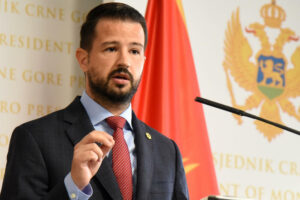
On January 1, 2026, a number of changes came into force in Ukraine that affect companies’ expenses, tax burdens, and foreign trade operations—from new state budget parameters and individual tax innovations to updates to energy tariffs and export licensing rules, according to the Experts Club information and analytical center.
The 2026 state budget has set new social standards that directly affect the wage fund, social security contributions, and the calculation of fines and mandatory payments linked to the minimum wage and subsistence minimum.
In terms of taxation, businesses should take into account the updated indicators for the simplified system and military tax. The tax service’s explanations for 2026 separately note the amounts of payments for individual entrepreneurs in groups 1-2, as well as the introduction/application of the military levy for single tax payers (in particular, a fixed payment for groups 1-2 and a percentage of income for group 3), plus a number of related administrative changes.
A separate section is devoted to labor regulation. Starting in 2026, the requirements for employers regarding the employment of people with disabilities will be updated (a change in the approach to meeting the quota and financial responsibility for non-compliance). This affects personnel policy, budgeting, and internal HR procedures, especially in companies with a large number of employees.
In foreign trade for 2026, the government has maintained zero quotas (a ban through quotas) on exports of natural gas of Ukrainian origin and a number of other items, while canceling quotas on exports of table salt and coking coal, and maintaining the licensing regime for certain agricultural items for export to a number of EU countries.
In the energy sector, the NEURC set the tariff for Ukrenergo’s electricity transmission services for 2026: for January-March – UAH 713.68/MWh (excluding VAT) for most system users and UAH 373.93/MWh (excluding VAT) for green electrometallurgy enterprises; for April-December – UAH 742.91/MWh and UAH 378.49/MWh, respectively (excluding VAT).
Changes in excise and financial matters are also important for certain industries. In particular, the schedule for increasing excise duty on motor fuel, previously introduced by amendments to the Tax Code, continues to apply, and an increased income tax rate has been set for banks for 2026.

Ukraine needs to update its legislation on critical minerals in order to exploit its existing resource potential and strengthen its competitiveness in the global market, participants in a thematic panel at the Ukraine Recovery Forum said. They stressed that without transparent rules of the game, specialized international partnerships, and a stable security environment, the implementation of large projects in the mining sector remains limited.
The panel was moderated by Vitaliy Radchenko, managing partner of CMS Ukraine and head of the energy and climate change practice. The discussion was joined by Volodymyr Tsabal, Secretary of the Verkhovna Rada Committee on Budget, Paul Coyier, Professor at the Institute of World Politics (USA), Ksenia Orynchak, Founder and Executive Director of the National Association of Extractive Industries of Ukraine, and Greg Swenson, Chairman of Republicans Overseas UK.
According to the speakers, Ukraine has significant reserves of critical raw materials, but the existing regulatory framework does not fully meet the requirements of international investors and specialized financial institutions. They emphasized the need for clear procedures for access to deposits, understandable risk-sharing mechanisms, and investment protection guarantees. “If Ukraine wants to occupy a prominent place in global supply chains for critical minerals, it needs modernized rules that are understandable to transnational companies and export credit agencies,” Tsabal said.
Separately, participants drew attention to China’s dominant role in the mineral processing segment, which poses significant risks to Western economies. In this context, the strategic partnership between Ukraine and the US, in their opinion, could become a tool for diversifying supply sources, as well as a channel for attracting capital and technology. “Cooperation with Ukraine makes it possible to reduce dependence on a limited number of suppliers and at the same time support the reconstruction of a country that is on the front line of the conflict,” Swenson emphasized.
At the same time, experts reminded that the implementation of projects in the extractive sector directly depends on the security situation. They noted that some of the territories rich in minerals are currently under Russian occupation, which complicates the planning and launch of new investment initiatives. According to the participants in the discussion, achieving lasting peace and creating a predictable security environment is a necessary condition for transforming Ukraine’s resource potential into real economic results.
The forum “Rebuilding Ukraine: Security, Opportunities, Investments” is being held on December 11-12 in Bucharest under the auspices of the Romanian Ministry of Foreign Affairs and the Ukrainian Ministry of Foreign Affairs and is organized by the New Strategy Center. According to the organizers, more than 30 panel discussions and parallel sessions are planned over two days with the participation of representatives of governments, international organizations, the private sector, financial institutions, and experts from Europe, North America, and Asia. The topics of the panels cover security and defense, infrastructure, financing and investment, green energy, digitalization, human capital, and cross-border cooperation.

According to the Serbian Economist, Montenegrin President Jakov Milatovic said that the country’s migration policy should be revised, emphasizing that the influx of foreigners has made housing and rent unaffordable for Montenegrin citizens. According to him, the real estate market is overloaded, and young Montenegrins are deprived of the opportunity to rent housing and combine study with work, Adria TV reported.
“Because of the large number of foreigners, a square meter of housing has become a luxury, rent has increased many times, and young people who could work, including while studying, have been left without the opportunity to earn for themselves and their families. It’s time to change the approach: first jobs and apartments for our citizens, and then open doors for foreigners,” said Milatovic.
He emphasized that migration policy should be “responsible and fair”, and the priority is to provide housing and jobs for locals and create conditions for the return of those who have gone abroad.
After 2022, Montenegro faced a marked increase in the number of foreigners, which sharply increased housing and rental prices. This was especially felt in Podgorica, Budva and seaside regions.
In the case of stricter rules of stay and rent, foreigners living in Montenegro are likely to look for alternatives in neighboring countries:
– Serbia is the most likely destination. The country is distinguished by its lenient migration legislation, proximity, common language space and developed infrastructure for foreigners. Belgrade, Novi Sad and Nis have already become centers of attraction for migrants, especially from Russia, Ukraine and CIS countries.
– Bosnia and Herzegovina is also attractive for migrants because of low housing prices, although it is much less developed in terms of infrastructure and labor market.
– Croatia – as an EU country remains an option, but high real estate prices and visa restrictions make it less accessible.
Thus, the most real “beneficiary” of a possible tightening of migration policy in Montenegro will be Serbia, where large migrant communities have already formed and where the authorities are interested in attracting foreigners to stimulate the economy.
According to the results of the 2023 census, there were 122,744 immigrants in Montenegro, i.e. people who lived outside the country for at least a year and later returned or resettled.
Of these, 35.3% were citizens of foreign countries (≈ 43,268 people).
Among the countries of origin of immigrants:
– Serbia – 45,000 persons;
– Russia – 15,000 persons;
– Germany – 7,000 persons;
– Ukraine – 3,000 persons.
In the municipality of Budva in 2023 among the inhabitants were 14 % of Russians and 4 % of Ukrainians.
https://t.me/relocationrs/1469

The Verkhovna Rada adopted as a basis the European integration bill No. 6480, which implements the provisions of EU Regulation No. 2019/787 in the field of geographical indications of alcoholic beverages and the production of alcoholic beverages according to EU standards into Ukrainian legislation.
The corresponding bill, submitted by the Cabinet of Ministers of Ukraine, was adopted at a parliament meeting on Friday by the votes of 266 people’s deputies (with the minimum required 226), Taras Melnichuk, representative of the Cabinet of Ministers in the Verkhovna Rada, said.
“This bill establishes general rules for the definition, description, presentation and labeling of alcoholic beverages, the rules for using the official names of alcoholic beverages; defines the features of the use and protection of geographical indications of alcoholic beverages; introduces a system for controlling geographical indications of alcoholic beverages,” the deputy wrote in his Telegram channel.
According to the text of the document, Ukrainian alcoholic beverages with geographical indications have significant potential in the European market, however, their sale and legal protection in the EU is possible only after successful state registration in Ukraine, the procedure for which currently does not exist due to the absence of the concept of legal protection of geographical indications of spirits.
To solve this problem, bill No. 6480 legislates the concept of “alcoholic beverage” and establishes a unified classification list of categories of alcoholic beverages and requirements for them; introduces requirements for ethyl alcohol and distillates used for the production of alcoholic beverages; ensures compliance with the rules for the definition, description, presentation and labeling of alcoholic beverages, including alcoholic beverages with geographical indications; ensures compliance with the requirements for the official names of alcoholic beverages.
“The implementation of the law will have a positive impact on the market environment, the state – by ensuring that Ukraine fulfills its obligations under the Association Agreement by bringing national legislation closer to the EU acquis in the field of legal protection of geographical indications; consumers – by ensuring transparency and fair competition in the alcohol market and providing information on alcoholic beverages,” is indicated in the explanatory note to the document.